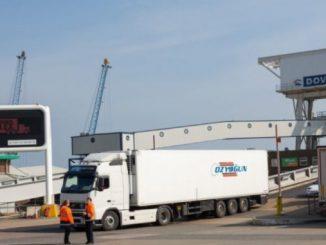
The safety of all road users is at risk now that the government has relaxed cabotage rules for foreign drivers, according to the Unite union.
It said that HGVs operating under the new system would not have to comply with the same licensing requirements and standards before entering the UK and there would be no independent monitoring of who was taking advantage of the relaxation.
The union also said there would be no roadworthiness checks of the lorries prior to driving into the country and that only “rare” spot checks would reveal if a driver was complying with drivers’ hours regulations.
“The government is playing a dangerous game,” said Unite national officer Adrian Jones.
“Lorry drivers from throughout the world can now be forced to work in the UK with no effective checks on whether their vehicles are safe or if they are obeying driving regulations.
“The government’s actions are also risking the safety of all road users.”
Read more
- New cabotage rules will force more drivers to park overnight in laybys, Logistics UK warns
- RHA launches new attack on HMRC after “shameful” cabotage rules are given go-ahead
- Forget cabotage and show us some respect….
The union’s general secretary Sharon Graham branded the move a short-term fix and that drivers relying on the new cabotage rules were at “extreme risk of being exploited”.
Graham said: “It could also undercut rates for UK lorry drivers.
“So the relaxing of the rules won’t be a temporary solution, in fact it could end up creating even more difficulties for the industry.”
Unite also said it was alarmed by the relaxation because it enabled drivers to operate under a reduced weekly rest period, so they could legally live in their cabs for the entire period they were in the UK and still be complying with driving laws.
However, they wouldn’t be governed by UK employment laws and so they could be paid below the national minimum wage.
Previously, Logistics UK said the relaxation would force more drivers to park up overnight in lay-bys and the RHA said it was “shameful” that the government had effectively offshored UK haulage work to foreign operators.













